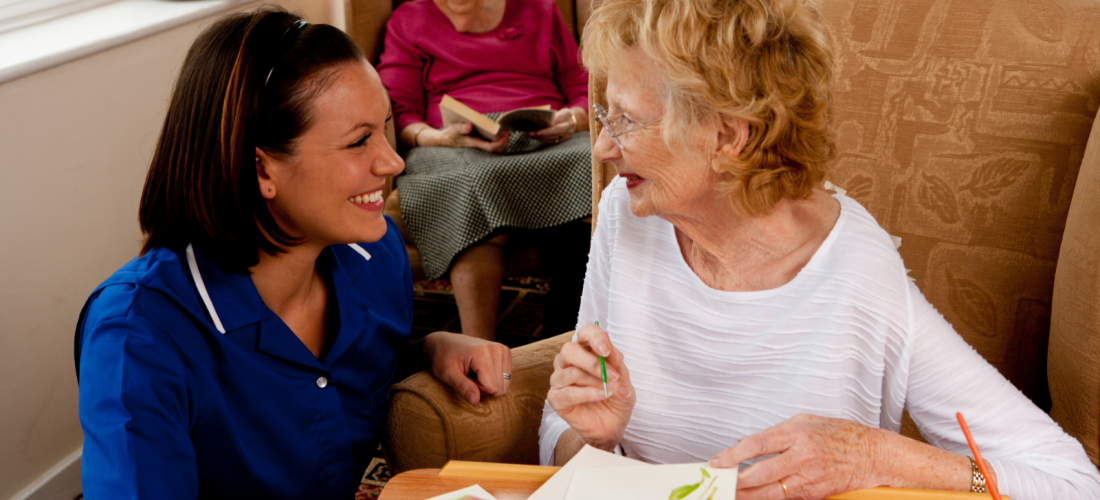Jackie is a visually impaired individual living in a care facility, she spends most of her days engaging in arts and crafts. She sits at her table and enjoys the tactile experience of creating pictures with crayons on A5 cards. A staff member observed:
She doesn't ask for much, and her favourite hobby is to sit at her colouring table all day.
Despite her passion for crafting, Jackie faced significant financial challenges, her weekly budget was limited to just £25. This was forcing staff to make tough decisions between essential items like shower gel and art supplies, this tight budget also restricted Jackie's ability to engage in outdoor activities, as trips out were costly. Jackie, who requires a wheelchair for mobility, often found it difficult and uncomfortable to access transportation. A staff member shared:
If the weekly budget was raised, we could book a train once a month for outdoor activities. Getting her in and out of the car is very painful and just not fair on her.
Recognising the limitations that Jackie's financial situation placed on her quality of life, a People first independent advocate was asked to step in and address her her needs. The advocate communicated with Jackie's social worker who put in a request to the property and financial service for an increase in her personal allowance, aiming to raise it from £100 per month to £250 per month. This increase would allow Jackie to better access the community and fully meet her needs.
Additionally, the advocate advised the care home staff to approach the care home manager and document all of Jackie's living expenses, including receipts, to demonstrate where her limited funds were being allocated. This documentation proved useful in discussions with Jackie's financial representatives, as it clearly outlined her need for increased financial support.
Throughout this process, the advocate worked closely with all relevant parties, ensuring Jackie's wishes were communicated effectively and that her needs were not overlooked. By maintaining regular communication with staff, the care home, and financial services, the advocate ensured that the appropriate measures were taken to address Jackie's concerns.
As a result of our intervention, Jackie's budget was increased to the £250 per month, which staff confirmed was sufficient to cover her essential needs and hobbies. Allowing her to continue her arts and crafts without having to sacrifice importance personal care items. Additionally, Jackie's mobility and access to the community improved significantly when she received use of an accessible car. the car was designed to accommodate her wheelchair, enabling her to move in and out of the vehicle with ease. The new level of mobility allowed staff to plan day trips, something that was previously limited due to transportation challenges.
Although the outcome was positive, the process of securing the increased budget took longer than expected. This delay caused some frustration and had a noticeable impact on Jackie's well-being, as she had to wait longer to access both financial and mobility assistance needed. Jackie's situation highlights the importance of advocacy helping individuals overcome financial and logistical barriers to achieve greater independence and well-being.
Jackie was supported under Care Act Advocacy; if you would like to find out more about how our Care Act Advocates can help you, please read our 'Good to Know' guide here.
Care Act Advocacy is free, confidential and independent from health and care services.
If you think you are eligible for a Care Act Advocate, please reach out to your social worker or local Adult Social Care office.
If you have tried to contact your social worker or local office and have had difficulty, please contact us directly and we can help you.
- Call us on: 03003 038 037
- Email: [email protected]
- Live chat: wearepeoplefirst.co.uk
